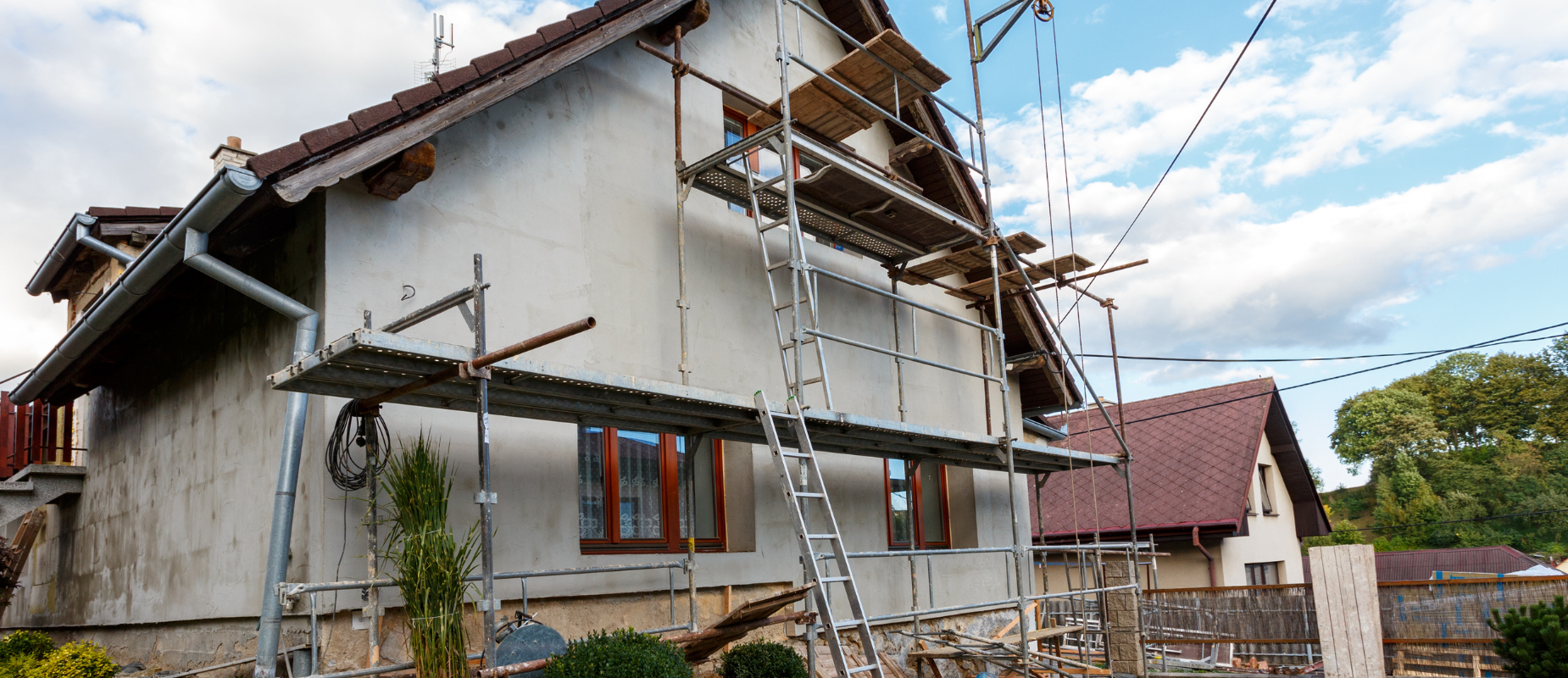
What Are the Benefits of Selling a Home That Needs Repairs?

Selling a home that needs repairs in Texas can be beneficial. Home sellers often worry about high renovation costs and time commitments. You might avoid these issues by selling as-is, especially in the Texas real estate market. An as-is property can attract buyers looking for investment opportunities, which may lead to a quicker sale.
How Can You Determine if Selling As-Is is the Right Choice for Your Home in Texas?
Consider several factors to decide if selling your Texas home as-is is right. Speak with a realtor familiar with Texas real estate repair rules. They can help you understand your options. An appraisal will show your property’s current value compared to its potential post-renovation value. Compare the costs and benefits of renovating versus selling as-is to make an informed decision about your property.
What Financial Advantages Might Sellers Experience?
Selling a home needing repairs can offer financial benefits. Accepting cash offers from Texas investors interested in renovations can make the sale process quicker and easier. You might avoid hefty renovation costs and enjoy a better return on investment (ROI). This option is ideal for those seeking a fast, straightforward transaction.
Are There Specific Tax Implications When Selling a Home Needing Repairs in Texas?
Yes, there are tax implications when selling in Texas. Understand how tax laws affect home repairs, especially regarding potential deductions. A tax professional can help you explore tax deductions for home repairs made before the sale. Consulting experts like the House Buying Girls can provide additional guidance.
Preparing to Sell Your Fixer-Upper in Texas

Preparing to sell a fixer-upper in Texas requires proper planning. Effective pricing strategies, inspections, and a Texas home selling checklist can help you through this process.
What Initial Steps Should You Take Before Selling?
Before selling, have a thorough pre-sale home inspection to find any major issues. Work with contractors in Texas to estimate repair costs and create a budget. This preparation helps set clear expectations for both sellers and buyers.
Should You Invest in Minor Repairs or Cosmetics Before Listing?
Minor repairs or cosmetic upgrades can boost your home’s appeal in the Texas real estate market. Consider the cost of repairs before sale alongside potential Texas home renovation ROI. Simple changes like fresh paint or landscaping can lead to better offers without large investments.
How Does Decluttering and Staging Impact Buyer Perception?
Decluttering and staging greatly affect how buyers view your home. A well-staged home appears more attractive, helping buyers see its potential. Use a Texas home staging checklist to ensure your home looks inviting and ready for sale. Proper marketing can also highlight your home, even if it needs repairs.
For more tips, contact experts like the House Buying Girls, who can efficiently guide you through the selling process.
Legal Considerations When Selling a Property in Need of Repairs
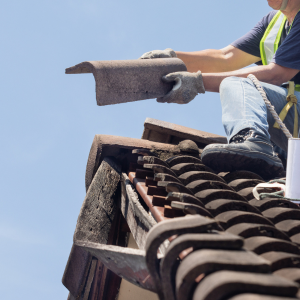
What Are the Disclosure Requirements for Property Conditions in Texas?
When selling a property in Texas, you must know the state’s rules for telling buyers about the property’s condition. Texas law requires sellers to give potential buyers a property condition disclosure form. This form lists any known problems with the property, ensuring full transparency. By doing this, sellers protect themselves from future conflicts over undisclosed issues. Filling out this form accurately helps you meet Texas property disclosure laws.
How Do Seller Liability and “as-is” Clauses Work?
Selling a property “as-is” means the buyer agrees to buy it in its current state, and the seller doesn’t have to make repairs. But this doesn’t completely remove the seller’s responsibility. In Texas, real estate contracts often include “as-is” clauses that need clear agreement from both sides. Sellers must know they can still be liable for hiding known defects or intentionally misleading buyers.
Are There Legal Steps Sellers Must Follow to Avoid Future Disputes?
To prevent disputes and liabilities when selling a fixer-upper, sellers should take these steps according to Texas real estate law:
- Accurately complete the property condition disclosure form.
- Clearly define any “as-is” clauses in the contract.
- Get legal advice to follow Texas real estate regulations.
Following these steps helps reduce legal challenges.
Navigating the Texas Market for Homes Needing Repairs
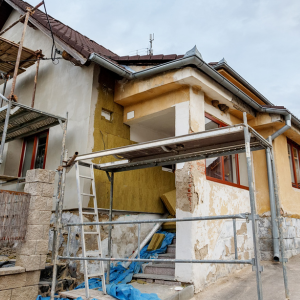
How Does the Current Market Affect Selling Properties in Need of Repair?
The Texas real estate market affects how easily you can sell a home that needs repairs. In a strong market, selling homes “as-is” might be easier since buyers might be more eager to invest in renovations. If the market is slow, fewer interested buyers could require better pricing strategies. Understanding these trends helps in successfully selling a home that needs work.
What Role Do Real Estate Professionals Play in Selling These Homes?
Real estate professionals are crucial in marketing and selling homes needing repairs. They help sellers by creating effective marketing strategies, setting the right price, and connecting with buyers. Agents familiar with the Texas market can make a property more appealing and simplify the buying process, benefiting the seller.
How Can You Effectively Advertise Your Property to Attract Buyers?
To draw buyers to a property needing fixes, try these marketing strategies:
- Highlight the property’s potential in listings.
- Use great photos showing both the property and what it could become.
- Use online platforms and social media to reach more people.
- Promote location perks and community features in ads.
These tactics can boost interest and speed up the sale of your property.
Understanding Buyer Expectations and Offers

What Are Common Buyer Expectations When Purchasing a Home That Needs Repairs?
Buyers often expect lower prices when buying homes needing repairs. In Texas, home buyers usually look for discounts on properties that need fixes. They might ask for repair allowances or adjust the purchase price based on expected repair costs. Knowing what Texas home buyers typically request can help sellers decide if they should fix up their homes before selling.
How Do Cash Offers Compare to Traditional Financing in Terms of Benefits?
Cash offers have several benefits over traditional loans. Cash buyers can close deals faster, which is great for sellers of distressed homes in Texas. Since there’s no waiting for loan approval, the risk of a deal falling through is reduced. Cash offers usually have fewer conditions, making negotiations easier. Many real estate investors favor cash deals for their speed and efficiency.
What Negotiation Strategies Can Be Employed to Achieve Favorable Outcomes?
Good negotiation can lead to a successful home sale, even if the home needs repairs. Working with a skilled real estate professional who knows about Texas home sale repairs can be very helpful. Pricing the home competitively and pointing out its potential are key tactics. Being flexible with repair requests can help close the deal. Understanding local market trends and buyer needs is crucial for successful negotiations.
Financial Analysis: Repair vs. Sell As-Is
How Do You Evaluate the Cost-benefit of Repairing Versus Selling as-is?
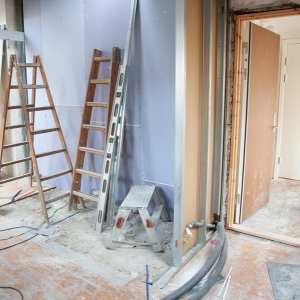
Deciding whether to repair a home or sell it as-is involves careful analysis. Compare the repair costs to the potential increase in home value after repairs. Knowing Texas real estate repair rules and their effect on appraisals is important. Sellers should consider whether investing in repairs is worth it compared to the ease of selling.
Are There Common Repairs That Yield Higher Returns on Investment?
Some repairs give better returns during home sales. Cosmetic improvements like painting and updating fixtures can make a home more appealing without high costs. Upgrading kitchens and bathrooms in Texas can greatly increase a home’s value. Based on current trends, real estate investor tips can guide which repairs might offer good returns.
How Can Repair Costs Affect Your Sale Price and Time on the Market?
Repair costs can impact the sale price and how long a home stays on the market. Homes needing many repairs might not sell quickly if priced too high, which can deter buyers. On the other hand, strategic repairs can make a home more attractive and justify a higher price. A pricing strategy that reflects the home’s condition and the local market in Texas can speed up the sale. Balancing repair costs with potential value increases is key to a successful sale.
Working with Real Estate Professionals
Selling a home in Texas can be easier with the right real estate professional. Real estate professionals and realtors know how to negotiate and market homes, even those that need repairs. Their understanding of Texas property laws and pricing strategies is important for getting the best deal.

What Should You Look for in a Real Estate Professional Experienced With Fixer-uppers?
Finding a real estate professional with experience in fixer-uppers is very important. They should know how to work with contractors in Texas and have tips from Texas real estate investors. Texas sellers should choose agents who can handle repair negotiations well. This ensures properties are priced right and marketed well.
How Can Agents Assist in Pricing Strategy for Your Property?
Real estate professionals use tools like comparative market analysis and appraisals to set prices. For Texas homes that need repairs, agents find the right price by looking at the property’s condition and its value after repairs. This helps your home stand out in the Texas market.
What Professional Services Can Enhance the Selling Process?
Several professional services can make selling a home easier. A pre-sale home inspection can show what repairs are needed. Staging the home can show its potential. Legal advice helps navigate Texas home selling laws. These services increase your home’s appeal and smooth out the selling process.
Closing the Deal Efficiently
Selling a home in Texas means going through several steps, from negotiating the sale to handling transaction costs. To make closing easier, understand the real estate contract and follow a Texas home selling checklist. Whether selling a home without repairs or dealing with complex agreements, efficiency is key.
How Can Sellers Prepare for the Closing Process on a Home Needing Repairs?
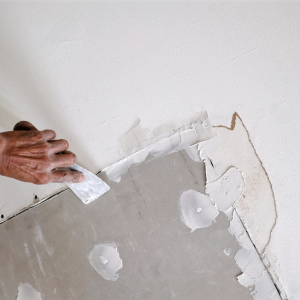
To prepare for closing, especially if the home needs repairs, Texas sellers should ensure full disclosure, prepare deeds, and work with a title company. They should also complete the Texas property condition disclosure and consider a home warranty to reassure buyers.
What Are the Typical Timelines From Offer to Closure in Texas?
The timeline from offer to closure in Texas varies, but certain steps always happen. After an offer is accepted, escrow opens, and inspections occur. For vacant homes, contingencies must be resolved before following typical closing procedures.
Are There Contingencies or Inspections That Might Affect the Sale?
Contingencies and inspections are important in a Texas home sale. Necessary inspections might include a general home inspection or specific checks like asbestos inspections. Understanding contingency clauses in Texas sales ensures all necessary repairs are handled, avoiding surprises that could slow the sale.
Evaluating Post-Sale Options and Planning Next Steps
After selling your Texas home, it’s important to think about what comes next. This section covers the steps you might take after a sale, how to manage profits, and expert advice for future investments.
What Are the Typical Next Steps After Selling an as-is Home?
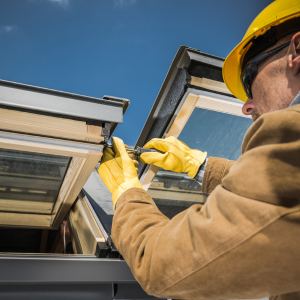
Selling a home as-is in Texas can be simple, but you must carefully plan your next moves. Here’s a straightforward plan for sellers:
- Relocation Planning: Decide if you’re moving locally or out of state and start looking for new housing that fits your needs and budget.
- Financial Organization: Keep all closing documents, like the settlement statement, for tax and financial planning.
- Transition Strategies: Find temporary housing if you can’t move into your new home immediately. Don’t forget to set up utilities and services at your new place.
How Should Sellers Handle Proceeds and Plan Future Investments?
Managing the money from your home sale wisely is key to securing your financial future. Here are some ideas:
- Investment Advice: Talk to a financial planner to find smart investment opportunities that match your goals.
- Profit Utilization: Decide how much money to save and how much to invest in assets like Texas real estate or other ventures.
- Asset Management: Use some of your profits to diversify your assets and build long-term wealth.
What Advice Do Financial Planners Offer for Reinvesting Home Sale Profits?
Financial planners give tailored advice to help you maximize your investments while keeping risks low. They suggest:
- Reinvestment Plans: Consider reinvesting in the Texas real estate market if property values are expected to rise.
- Capital Gains Utilization: Learn about capital gains taxes and explore options to delay payments, like 1031 exchanges.
- Advisor Insights: Get expert advice on building a diverse portfolio, including stocks, bonds, and real estate, for optimal growth.
Insights from Real People: Experiences Selling Homes in Texas
Listening to others who’ve sold homes in Texas can give you useful tips and strategies.
What Stories and Experiences Have Other Sellers Shared About Selling as-is?
Here are some personal stories that highlight common themes and challenges in Texas property sales:
- Seller Testimonials: Many sellers stress being realistic about pricing and adapting to market conditions when selling as-is.
- Home Selling Stories: First-hand accounts show that clear communication with buyers leads to smoother sales.
How Have Other Homeowners Navigated Challenges in the Texas Market?
Succeeding in the Texas market requires flexibility and strategic planning. Here are tactics others have used:
- Market Strategies: Sellers succeed by highlighting unique features of their properties and following current market trends.
- Adaptation Tactics: Being flexible in negotiations and open to different buyer conditions can help overcome challenges.
What Lessons Can Future Sellers Learn From Past Experiences?
Looking at past sales offers valuable lessons for those planning to sell:
- Seller Education: Understand historical data to predict market changes better and meet buyer expectations.
- Knowledge Sharing: Connect with other sellers to gain insights and strategies for improving your home-selling experience in Texas.
FAQs:
How can I sell a home in Texas that needs repairs?
Selling a property in Texas that needs repairs means deciding whether to fix it up or sell it as-is. Get a real estate expert to help you know your home’s value and market it well. Cash buyers might buy without you needing to do the repairs, which can save on transaction costs.
Should I renovate my fixer-upper before selling in Texas?
Whether to renovate depends on how much money you might make back and the current market trends. A pre-sale home inspection will show what needs fixing. Sometimes, selling as-is may be better, especially if cash buyers are interested in customizing the home.
What should I disclose when selling a home in Texas that needs repair?
To meet legal requirements, you must clearly disclose any known defects, repair history, and important renovation details about the property. Being honest builds trust with buyers and can avoid future legal problems.
How does selling a house in a Texas flood zone affect the process?
Selling in a flood zone requires sharing information on past floods, insurance needs, and buyer concerns. Showing what you’ve done to reduce flood risks can make your property more appealing. An experienced realtor can help manage these issues.
What are the tax implications when selling a house needing repairs in Texas?
Tax changes depend on how long you’ve owned the home and what repairs you’ve made. Some repair costs may be deductible. Getting a tax advisor to help you understand these details for the best financial result is smart.
Is seller financing a viable option for properties needing repairs in Texas?
Seller financing might attract buyers who cannot get a traditional mortgage but want a fixer-upper. It offers flexible terms and could lead to a quicker sale. However, check the risks and work with a real estate lawyer to create clear contract terms.
How can I enhance the curb appeal of a Texas home requiring repairs?
Boosting curb appeal can be simple. Try updating landscaping, repainting the front door, or fixing minor exterior issues. Even if the home still needs more repairs, this can make a great first impression.
What strategies help sell an inherited property needing repairs in Texas?
Selling an inherited property might involve understanding probate sales and family feelings. Find out its value, market it for its potential, and consider working with an iBuyer or investor specializing in such properties to make the process easier.
Key Insights
- Selling a home in Texas that needs repairs can affect the property’s value and sale process. Doing proper renovations can improve the market appeal of a fixer-upper.
- Understanding tax deductions for home sale repairs in Texas is crucial, especially for older homeowners or those going through probate sales. These deductions can impact your bottom line.
- Texas real estate repair rules help sellers decide whether to renovate or sell as-is. This choice affects transaction costs and pricing strategy.
- Working with contractors and considering seller financing can reduce the stress of home repairs, boosting investor confidence.
- Pre-sale home inspections, including checks for asbestos and mold, are important for accurate valuation and better curb appeal.
- Making energy-efficient upgrades and fixing foundation issues can increase your home’s sale price in Texas. DIY improvements may qualify for flat fee services.
- Marketing homes needing repairs in Texas benefits from using strategies like iBuyer options and appraising fixer-uppers, leading to better negotiations.
- Getting legal advice for selling property in Texas flood zones and understanding lease options ensure compliance during your sale process.
- Using tools like earnest money agreements, knowing insurance requirements, and thinking about a home warranty can provide security in the Texas home-selling process.
- Explore Texas cash buyers and alternatives like Listingspark for efficient home sales, and consider demographics for commercial real estate opportunities.
This information applies to Texas and its cities, such as Dallas, Fort Worth, and Arlington. For help or questions, call us at (214) 393-8026. You can also visit our website at House Buying Girls for more details.
Additional Resources To Help Sell Your House In Texas

